U.S. investors have treated European equities as if they were radioactive in recent years. Americans have been net sellers in European stocks from 2008 until the start of this year, with the exception of a brief period in 2010, according to data compiled by Goldman Sachs.
It’s not hard to understanding why. The sovereign debt crisis that started in Greece, then spread through southern Europe, tipped the entire Eurozone into an 18-month, double dip recession that has only just ended.
Yet now there’s evidence that U.S. investors with an appetite for risk are starting to return to the European equity market and the regional market for initial public offerings is showing signs of life again. During the first five months of 2013, US investors bought $65 billion plus of European stocks on a net basis, Goldman notes.
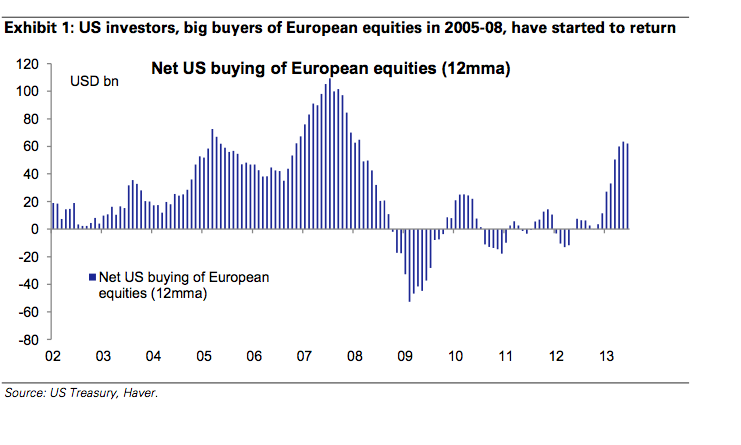
The intriguing question for U.S. investors is this: Do the signs of a rebound in the Eurozone such as improved consumer spending, manufacturing and exports add up to an attractive investment opportunity? Or is this all a false dawn that will disappoint in 2014? There are compelling reasons for American investors should to take a serious look, some equity analysts say.
Major regional stock indexes such as the Euro Stoxx 50 Index, the FTSE 100, CAC 40 and DAX have seen double-digit gains through October 16 of this year.
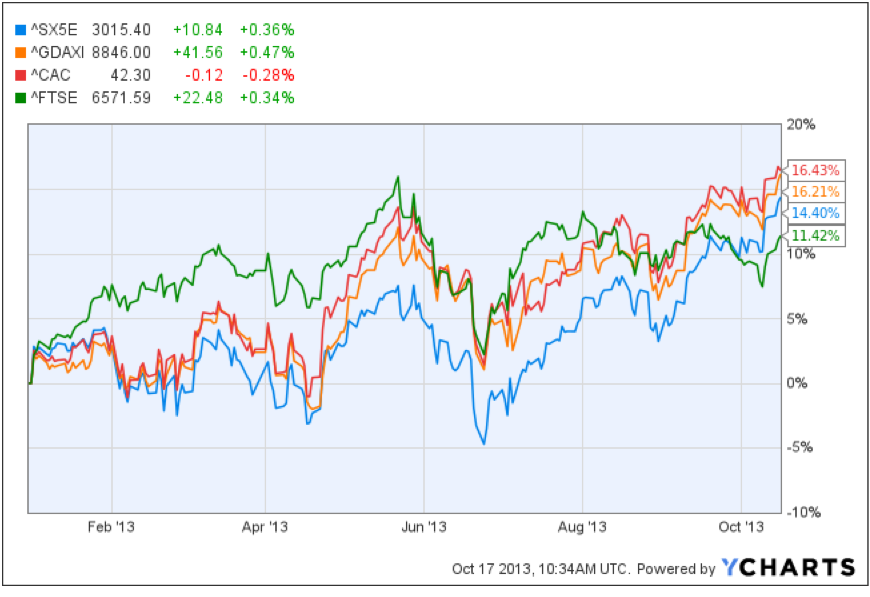
European stocks overall also look attractively valued versus their American counterparts: Companies in the Euro Stoxx 50 Index were trading at about 13 times this year’s estimated earnings, compared with more than 19 for companies on the Nasdaq Stock Market and the Nikkei 225 Stock Average, data compiled by Bloomberg show.
On top of that, the European market for initial public offerings has really come storming back this year. As of the end of September, European startups launching IPOs have raised $16.2 billion, a level that surpasses the figure for all of 2012, according to data compiled by Dealogic.
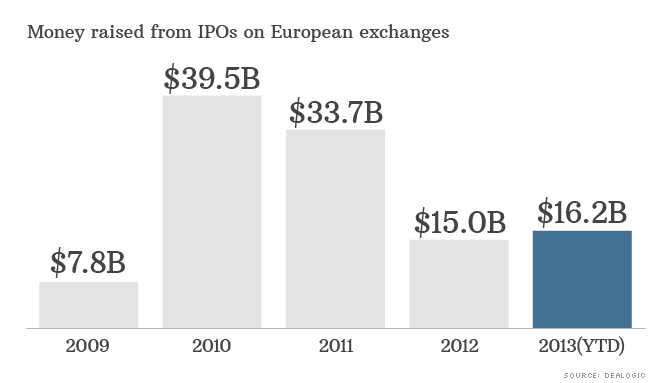
“There is a perception that the majority of the region’s economic problems are behind us and we’re going to see lower volatility levels,” said Josef Ritter, head of equity capital markets for Europe at Deutsche Bank AG in London told Bloomberg. “A key theme of this quarter was U.S. investors refocusing on Europe.”
Among the actual or pending IPOs of note are: Deutsche Annington Immobilien SE,Germany’s largest residential landlord; U.K. property broker Foxtons Group Plc; U.K.’s Royal Mail Group Ltd. and London-based Merlin Entertainments Group Ltd., according to Bloomberg.
Will American investors come storming back? True, U.S. investors are still underweight in European equities compared with where they have been historically when you look at buying levels between 2003 and 2008 and long-term going back to 1978. Take at look at this chart from Goldman:
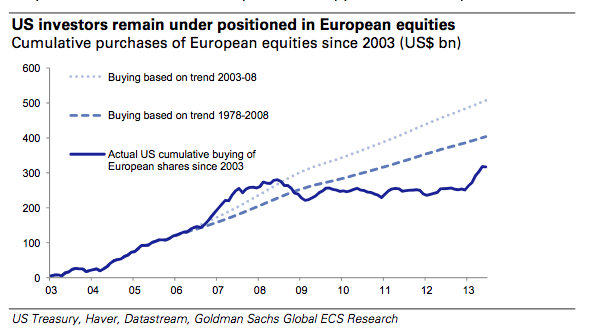
However, European investors have come back in greater force and that suggests that confidence may be coming back. In the 12 months ended September 30, European investment funds bought almost 80 billion euros ($109 billion) worth of Eurozone equities, a level not seen since early 2010.
Goldman analysts, in a bullish research note to clients on September 27, see the return of European investors as a big positive:
This is consistent with the view that we hold that these are being driven by the improvement in both global growth and the Euro area’s fundamentals, principally signs of bottoming out in both manufacturing and consumption. Assuming the improvements in the data continue and risks do not reemerge we believe there is room for further flows into equities, and in particular into European equities.
If U.S. investors come back in force, the already-robust performance of European stocks may get an additional boost, Goldman analysts point out. Since 2003, there has been a strong correlation between US investor participation rates and European equity performance.
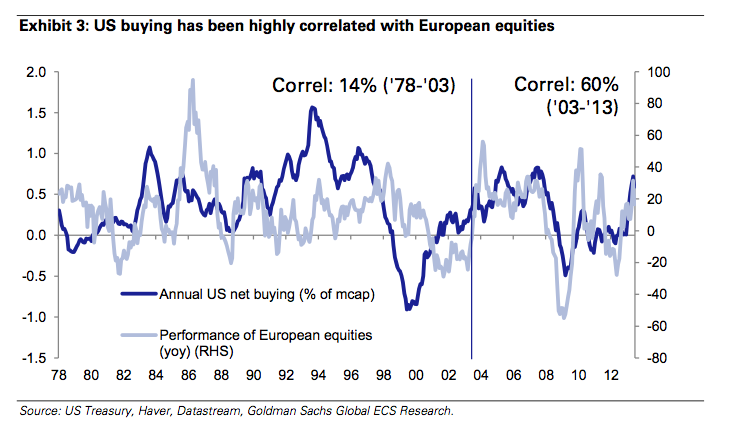
Disclaimer: All investments involve risk and various investment strategies will not always be profitable. International investing involves special risks, such as political instability and currency fluctuations. Past performance does not guarantee future results.


